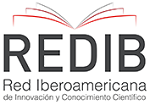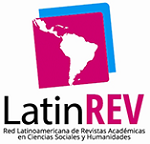Importancia pedagógica de la competencia lectora. Un estudio comparado sobre PISA
DOI:
https://doi.org/10.15649/2346030X.3105Palabras clave:
rendimiento académico, competencia lectora, lectura, comprensión lectora, informe técnico PISAResumen
La lectura, como actividad cognitiva compleja, se ha convertido en el foco de numerosos estudios tanto nacionales como internacionales desde una perspectiva comparativa. En esta investigación se analiza el Programme for International Student Assessment (PISA) a lo largo de los últimos años ya que, de acuerdo a los resultados obtenidos en España, se evidencia el bajo rendimiento presentado por el alumnado en la competencia lectora, mostrándose tal aspecto en los diferentes ciclos analizados, e incluso empeorando si tomamos en cuenta los informes de 2006 y 2018 ya que son los años en los que se alcanzaron los resultados más bajos (461 y 477 puntos respectivamente). Para ello, se analizan los factores que influyen en el desarrollo de la competencia lectora mediante un estudio comparativo y longitudinal desde el año 2000 a 2018 teniendo en cuenta los resultados facilitados por la Organización para la Cooperación y el Desarrollo Económicos (OCDE). Considerando estos datos, a fin de comprenderlos mejor y contextualizar los factores que pueden dar lugar a los mismos, se estudian otros elementos como son la presencia de la competencia lectora en la legislación española, la inversión realizada en Educación Secundaria, la tasa de alumnado que finaliza Educación Secundaria Obligatoria, así como la evolución que han tenido las bibliotecas escolares tanto en número, usos o la participación de las familias y el entorno en las mismas. Estos aspectos se analizan de manera comparada con el rendimiento en lectura obtenido a lo largo de los estudios PISA. Por último, el enfoque de abordaje de los informes PISA justifica su consideración como elementos de referencia para comprender cualitativamente y de manera global los aspectos que interfieren en la consecución de una competencia lectora adecuada para el alumnado de quince años. Ello va más allá de los resultados numéricos.
Referencias
T. Dezcallar, M Clariana, R Cladellas, M Badia & C. Gotzens, “Reading for pleasure: its incidence on academic performance, hours of television and hours of video games”, Ocnos: Journal of Reading Studies, vol. 12, pp. 107-116, 2014. https://doi.org/10.18239/ocnos_2014.12.05.
M.D. Delgado, I. Méndez & C. Ruiz, “Motivation towards reading in Pre-school and Primary School students”, European Journal of Education and Psychology, vol. 13, no 2, pp.177-186, 2020. https://doi.org/10.30552/ejep.v13i2.359.
J. Mora-Figueroa, A. Galán & M. López-Jurado, “Effectiveness of a family involvement programme in the reading of students in the 1st year of Primary Education”, Revista de Psicodidáctica, vol. 21, no 2, pp. 375-391, 2016.
I. Bento & A. Balça, “Promoting literary education - the family and the teacher as reading mediators”, Tejuelo, vol. 23, pp. 63-84, 2016. https://doi.org/10.17398/1988-8430.23.1.63.
H. Arendt, “From history to action”, Barcelona: Ediciones Paidós, 1995.
I. Zorroza, “Transcendence and openness. An image of man for our time”, Cauriensia, vol. 10, pp. 459-471, 2015.
S. Yubero-Jiménez & E. Larrañaga-Rubio, “The value of reading in relation to reading behaviour. A study on reading habits and lifestyle in children”, Ocnos, vol. 6, pp. 7-20, 2010.
E. Sanz-Arazuri, M.A Valdemoros-San-Emeterio, C. Duque-Palacios & F.J. García-Castilla, “Youth cultural leisure, a subjective indicator of human development”, Cauriensia, vol. 14, pp. 491-511, 2019. https://doi.org/10.17398/2340-4256.14.491
M.A. Valdemoros-San-Emeterio, E. Sanz-Arazuri, A. Ponce-de-León-Elizondo & M.C. Duque-Palacios, “Young readers and satisfaction with family life”, Ocnos, vol. 19, no 3, pp. 29-41, 2020. https://doi.org/10.18239/ocnos_2020.19.3.2361
F. Pedró, “Deconstructing PISA scores: from the analysis of results to policy prescription”, Revista Española de Educación Comparada, vol. 19, pp. 139-172, 2012. https://doi.org/10.5944/reec.19.2012.7581.
I. Solé, “Reading competence and learning”, Revista Iberoamericana de Educación, vol. 59, pp. 43-61, 2012. https://doi.org/10.35362/rie590456.
OECD, “Definition and selection of Key Competencies. Executive Summary”, Paris: OECD Publications, 2005.
Ministry of Education and Vocational Training, “PISA 2018. Programme for International Student Assessment. Spanish report”, Madrid: Secretaría General Técnica, 2019.
OECD, “PISA 2018 Results (Volume I): What students know and can do”, Paris: OECD Publishing, 2019.
Ministry of Education and Vocational Training, “How does PISA define and measure reading literacy?”, Madrid: Secretaría de Estado de Educación, 2019.
I. Mullis, M. Martin & M. Sainsbury, “PIRLS reading comprehension framework” in Mullis, I., and Martin, M., “PIRLS 2016.Assessment framework” (11-29), Madrid: Ministry of Education, Culture and Sport, 2016.
T. Harris & R. Hodges, “The Literacy Dictionary: The Vocabulary of Reading and Writing”, Newark: International Reading Association, 1995.
National Reading Panel, “Teaching children to read: an Evidence-Based Assessment of the Scientific Research Literature on Reading and Its Implications for Reading Instruction”, Bethesda: National Reading Panel, 2000.
G. Wells, “The meaning makers: Learning to talk and talking to learn (2nd edition)”, Bristol: Multilingual Matters, 2009.
P. Freebody & A. Luke, “Literacies Programs: Debate and Demands in Cultural Context”, Prospect: Australian Journal of Teaching/Teachers of English to Speakers of Other Languages (TESOL), vol. 5, no. 3, pp. 7-16, 1990.
E. Jiménez, “Reading comprehension vs. reading competence: what are they and what is the relationship between them”, Reading Research, vol. 1, pp. 65-74, 2014. https://doi.org/10.24310/revistaisl.vi1.10943.
I. Solé, “The possibilities of a theoretical model for teaching reading comprehension”, Journal for the Study of Education and Development, vol. 39-40, pp. 1-13, 1987.
Organic Law 2/2006, of 3rd May, on Education, Official State Gazette, no 106, 2006.
Organic Law 8/2013, of 9th December, for the improvement of educational quality, Official State Gazette, no 295, 2013.
Organic Law 3/2020, of 29th December, which amends Organic Law 2/2006, of 3rd May, on Education, Official State Gazette, no 340, 2020.
E. Pang, A. Muaka, E. Bernhardt & M. Kamil, “The teaching of reading”, Bruselas: International Academy of Education, 2003.
Ministry of Education and Culture, “Results in Spain of the PISA 2000 study. Knowledge and skills of 15-year-old students”, Madrid: Secretaría General Técnica, 2005.
OECD, “The future of education and skills. Education 2030”, Paris: OECD Publishing, 2018.
OECD, “PISA 2025 foreign language assessment framework”, Paris: OECD Publishing, 2021.
L.M. Benítez-Díaz, M.L. Sevillano & E. Vázquez, “Effects on academic performance in secondary students according to the use of ICT”, IJERI, no. 12, pp. 90–108, 2019. https://doi.org/10.46661/ijeri.4045.
M.J. Vera, “The treatment of linguistic and literary competence through the social network”, International Journal of Educational Research and Innovation, no. 2, 29-45, 2014. http://hdl.handle.net/10433/2199.
N. Alcaraz, R. Caparrós, E. Soto, R. Beltrán, A. Rodríguez & S. Sánchez, “Does PISA assess reading literacy?”, Revista de Educación, no. 360, pp. 577-599, 2013. https://doi.org/10.4438/1988-592X-RE-2011-360-130.
R.L. Linn, “Assessments and Accountability”, Educational Researcher, vol. 29, no. 2, pp. 4-16, 2000. https://doi.org/10.2307/1177052.
OECD, “OECD Skills Surveys”, 2023. https://pisadataexplorer.oecd.org/ide/idepisa/.
Ministry of Education and Vocational Training, “Education Statistics”, 2023. https://www.educacionyfp.gob.es/servicios-al-ciudadano/estadisticas.html.
J. Mayor, “Reading comprehension strategies”, Carabela, vol. 48, pp. 5-28, 2000.
F. Ferrer, O.Valiente & J.L. Castel, “PISA-2006 results from the perspective of educational inequalities: the comparison between Autonomous Communities in Spain”, Revista española de Pedagogía, no. 245, pp. 23-48, 2010.
P. Elosua, “Individual and regional differences in socioeconomic and cultural status as predictors in PISA 2009”, Revista de Educación, no. 361, pp. 646-664, 2012. https://doi.org/10.4438/1988-592X-RE-2013-361-236.
I. Minelgaite, R. Nedzinskaitė & K. Kristinsson, “Social cultural Dimensions and GDP as Predictors of Educational Leadership and School Autonomy Indicators in PISA”, Pedagogika, vol. 131, no. 3, pp. 233-251, 2018. https://doi.org/10.15823/p.2018.44.
S. Nieto & A. Recamán, “Interpretation of education systems through cluster analysis linked to some variables of the PISA-2006 Reports”, Revista española de Pedagogía, vol. 250, pp. 463-484, 2011.
S. Figueroa & J.L. Gallego, “The relationship between vocabulary and reading comprehension: A cross-sectional study in basic education”, Signos Journal. Estudios de Lingüística, vol. 54, no. 106, pp. 354-375, 2021.
C. Amiama-Espaillat & C. Mayor-Ruiz, “Exploring the relationship between reading fluency and reading competence in Secondary Education”, Ocnos. Journal of Reading Studies, vol. 17, no. 1, pp. 21-31, 2018. https://doi.org/10.18239/ocnos_2018.17.1.1278.
A. Cuevas & J. Vives, “Reading literacy in the PISA study. An analysis from the perspective of information literacy”, Anales de documentación, no. 8, pp. 51-70, 2005.
E. Vázquez-Cano, “Analysis of Difficulties of Spanish Teachers to Improve Students' Digital Reading Competence. A Case Study within the PISA Framework”, Pedagogika, vol. 125, pp. 175-194, 2017. https://doi.org/10.15823/p.2017.13.
J. Cabero-Amenara, R. Valencia-Ortíz & A. Palacios Rodríguez, “E-learning in times of COVID-19. What have we learned?”, International Journal of Educational Research and Innovation, no. 17, pp. 14-26, 2022. https://doi.org/10.46661/ijeri.6361.
S. Akbasl, M. Sahin & Z. Yaykiran, “The effect of reading comprehension on the performance in science and mathematics”, Journal of Education and Practice, vol. 7, no. 16, pp. 108-121, 2016.
A. Biemiller & C. Boote, “An effective method for building meaning vocabulary in primary grades”, Journal of Educational Psychology, vol. 98, pp. 44- 62, 2006. https://doi.org/10.1037/0022-0663.98.1.44.
A. Geske & A. Ozola, “Factors influencing reading literacy at the primary school level”, Problems of Education in the 21st Century, no. 6, pp. 71-77, 2008.
J. Gil, “Reading habits and basic skills in students in Compulsory Secondary Education”, Education XXI, vol. 14, pp. 117-134, 2011. https://doi.org/10.5944/educxx1.14.1.274.
I. Koyuncu & T. Fırat, “Investigating reading literacy in PISA 2018 assessment”, International Electronic Journal of Elementary Education, vol. 13, no. 2, pp. 263-275, 2020. https://doi.org/10.26822/iejee.2021.189.
P. Lebrero & T. Lebrero, “How and when to teach reading and writing”, Madrid: Síntesis, 1996.
I. Enkvist, “Good and bad education”, Madrid: Ediciones Encuentro, 2011.
I. Solé, “Innovation projects and programs in teaching and learning of reading and writing”, in A. Badía, T. Mauri & C. Monereo. (Coords.), “Psychopedagogical practice in formal education” (pp. 229-246), Barcelona: UOC, 2004.
D. Pennac, “Mal de escuela”, Barcelona: Debolsillo, 2011.
A. Marchesi, “Reading as a strategy for educational change”, Revista de Educación, no.205, pp. 15-36, 2005.
J. Cromley, “Reading, Achievement and Science Proficiency: International Comparisons from the Programme on International Student Assessment”, Reading Psychology, vol. 30, no. 2, pp. 89-118, 2009. https://doi.org/10.1080/02702710802274903.
N. Cruz, K. Guill & J. Retelsdorf, “Language in science performance: do good readers perform better?”, European Journal of Psychology of Education, vol. 36, pp. 45-61, 2021. https://doi.org/10.1007/s10212-019-00453-5.
H. Savolainen, T. Ahonen, M. Aro, A. Tolvanen & L. Holopainen, “Reading comprehension, word reading and spelling as predictors of school achievement and choice of secondary education”, Learning and Instruction, no. 18, pp.201-210, 2008. https://doi.org/10.1016/j.learninstruc.2007.09.017.
H. Giroux, “Teachers as intellectuals: Toward a critical pedagogy of learning”, London: Bergin & Garvey Publishers, 1988.
I.M. Madero & L.F. Gómez, “The reading comprehension process in third year secondary school students”, Revista Mexicana de investigación educativa, vol. 18, no. 56, pp. 113-139, 2013.
E. Agrelo-Costas & A. Piñeiro Casal, “Poetry: educator of emotions”, Tejuelo, no. 33, pp. 185-216, 2021. https://doi.org/10.17398/1988-8430.33.185
Descargas
Publicado
Cómo citar
Descargas
Número
Sección
Licencia
Derechos de autor 2023 AiBi Revista de Investigación, Administración e Ingeniería

Esta obra está bajo una licencia internacional Creative Commons Atribución 4.0.
La revista ofrece acceso abierto bajo una Licencia Creative Commons Attibution License

Esta obra está bajo una licencia Creative Commons Attribution (CC BY 4.0).










